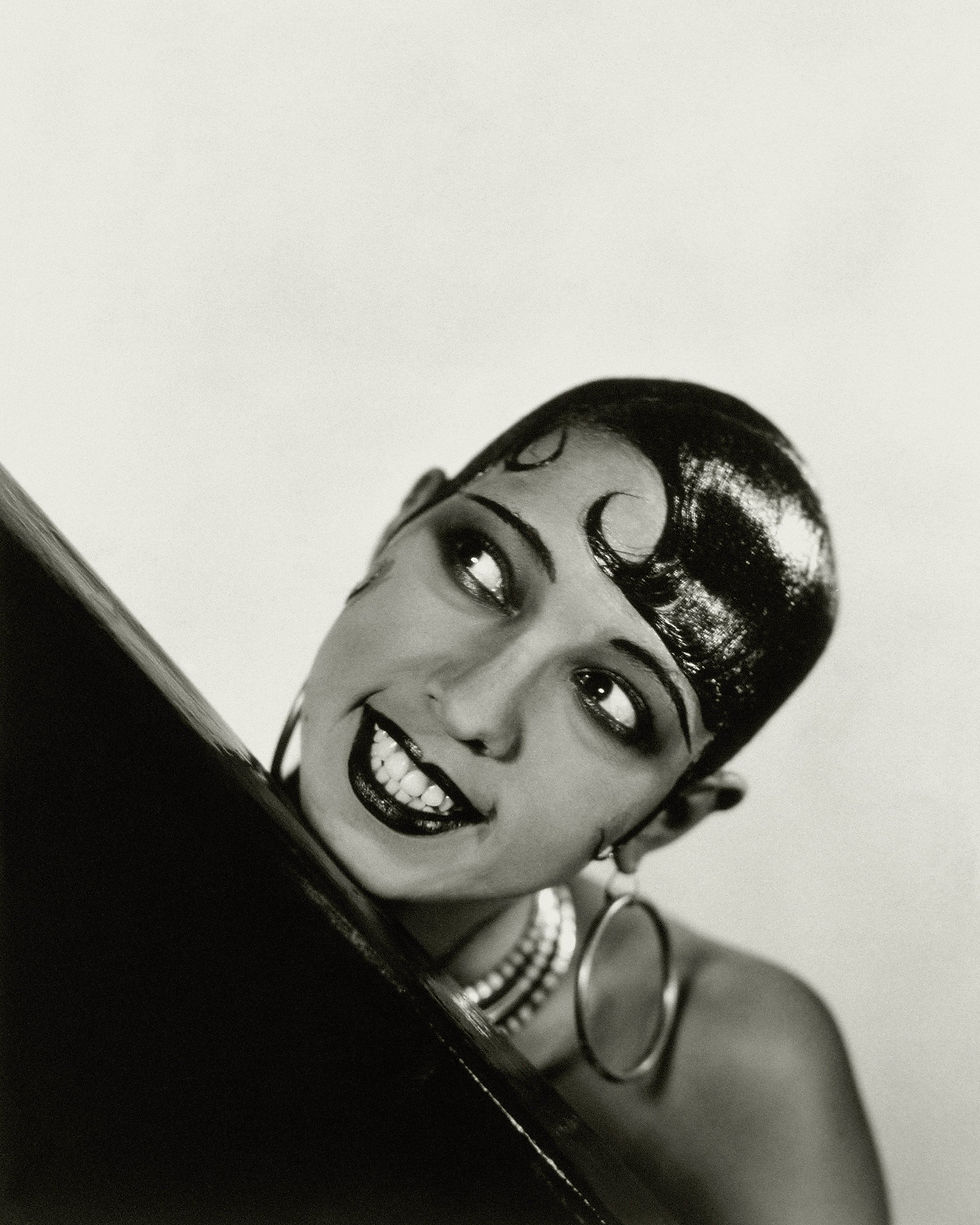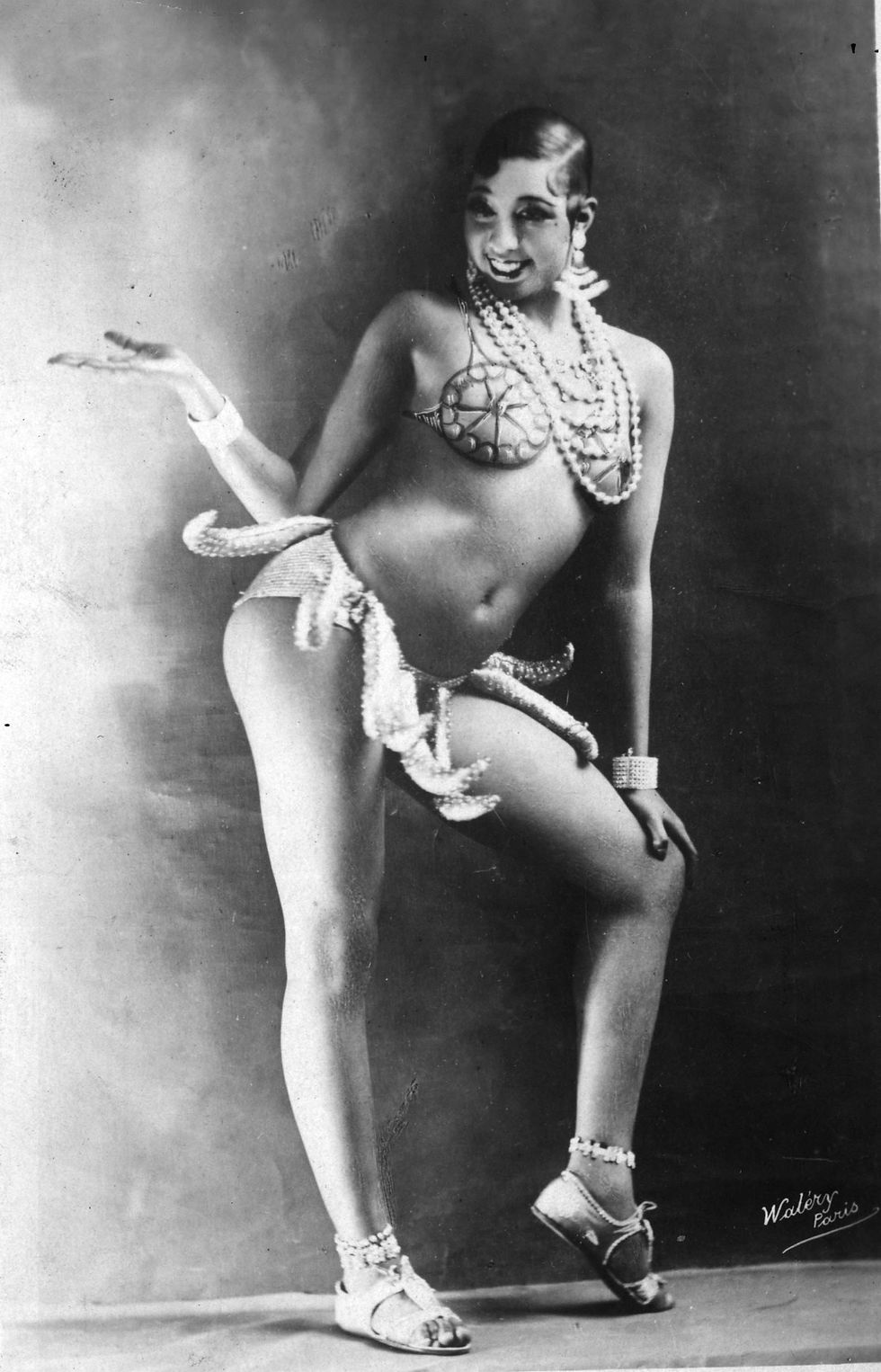Josephine Baker: Letter of Praise and Protest
- Fawn Logan-Young
- Feb 2, 2020
- 6 min read
Updated: Feb 3, 2020
"Americans, the eyes of the world are upon you. How can you expect the world to believe in you and respect your preaching of democracy when you yourself treat your colored brothers as you do?" - Josephine Baker (1906-1975)
In the spirit of Black History Month, I'm sharing an assignment I really enjoyed working on from my last semester.
The point of the assignment was to write a letter of “Praise and/or Protest” to an individual, organization, political leader, or corporation, concerning an issue that is relevant to gender, feminism and/or women’s studies. As you can tell from the title, I chose activist, dancer, and veteran, Josephine Baker. To define her with just three classifications denounces how phenomenal she really was. So, without further ado, enjoy the read!
Dear Josephine Baker,
I do not know where to begin. The self-determination you showed throughout your life has set high standards for feminists of color all around the globe. I am currently taking an introductory class in Women, Gender, and Feminism Studies at the University of Ottawa. In my third week of class, you popped into my mind many times when talking about The Canadian Research Institutions of the Advancement of Women (CRIAW). The main objective of CRIAW is to research and expand the promotion of feminists’ needs regarding social justice and equality for women. From this came the promotion of Intersectional Feminist Frameworks (IFFs). IFFs acknowledge and promote economic and social change that value and bring together the visions, directions and goals of women from very diverse perspectives. Most importantly to me, IFFs highlight the significance of individuals’ experiences (CRIAW, 2006). Sadly, you passed away a year before CRIAW was founded (Norwood, A. 2017). If you lived to hear about CRIAW, I believe the platform would have given you some validation regarding your activism and perspectives on empowering not only women, but the African American community as a whole.

Much like Sojourner Truth, a 19th-century African American abolitionist and women's rights activist (Brah, Avtar, & Phoenix, Ann. 2004), you expressed your knowledge of intersectionality before the world had a chance to put the concept into words. You, Josephine were a woman beyond your time. From your rise from poverty in St. Louis, Missouri to escaping to Paris to overcome discrimination, you recognized the importance of women’s lived experiences in creating change within society (Forest, K. 2017). As someone who had the opportunity to live on both sides of freedom and oppression, you had a rare perspective in making intersectional connections to the world in which you lived. You knew the only way to achieve empowerment for women of color was by obtaining dignity not only within society, but on a personal level as well.
Your achievements as a woman in your era were ground-breaking and showed us the importance of micro activism. You became the first woman of color to star in a motion picture. You were the highest paid performer in France in a time when women were not the “breadwinners” of the household. You also served as an honorary sub lieutenant in the Women’s Auxiliary of the French Air Force, becoming a spy when women were limited in their participation in the war (Forest, K. 2017). You have shown us that the seemingly impossible is in fact possible. Another way in which you showed that you were a trailblazer was by shedding light on unconventional or taboo practices for women at a time when the world was not yet ready. You used your sexuality and body as a way of expression to grow out of poverty. Though some may see your claim to stardom as demeaning, you created a new way for the world to see burlesque as an art and a tool of empowerment, not a form of degradation. You were on the cusp of key female social movements time after time.
In Canada, divorce was illegal until 1968 (Eichler, M. 2016). At this point you had already divorced four times in an era when marriage was prioritized as a political and economic institution (Forest, K. 2017). I think your divorces reflect your rejection of such institutions and showed what you believed to be the core to systemic change: love. Regardless of all the commotion the media caused regarding your divorces, you persisted in growing your family without a male presence in your household. Not only was single parenting nearly unheard of by social standards of that time, but you adopted children from all over the world, declaring your family the “Rainbow Tribe” (Forest, K. 2017). You wanted to show the world that, regardless of ethnicity and sex, our differences could be overlooked. Your loving actions were another way to show North America that integration was possible on a larger scale. You used love as a form of activism.
No matter how progressive we are, I recognize that we can’t always be “perfect” feminists – As Roxanne Gay would say, but I do wonder about certain behaviors of yours. You were known for your relationships with women, potentially being one of the first queer women of color in the entertainment industry (Forest, K. 2017). I applaud you for going with your heart but question why you did not describe yourself as queer. Additionally, there were rumors of you being homophobic towards gay men despite your persistent variations of prescribed social norms (Forest, K. 2017). Did you express homophobia because you were suppressing your own sexuality to the public as sociologist Michael Messner might have theorized? Were there other biases you may have held that the public was not aware of? I continue to wonder if it was because of the limited perspectives around you. For example, I ponder whether you would have seen women with disabilities as a marginalized group worth advocating for without influences like Neita Kay Israelite and Karen Swartz, who have spent their careers promoting disability inclusion (Hobbs, M. & Rice, C. 2018). I cannot judge you for your actions for I do not know what it was like to live in your generation. However, I wonder if you would have been an open ally if you were able to witness the changes and acceptance that are being shown today towards certain suppressed groups. At the end of the day, we are all human. Any biases you may have had, I would like to think that they were simply a product of your environment, not of who you were.
Speaking of “being human”, I could not imagine the challenges of returning to America to realize your achievements could not make you immune to discrimination. Regardless, the fact that you fought back was the most heroic actions I believe you achieved in your career of activism. You refused to play at venues that did not allow a racially mixed audience. It is said that you were the one who paved the way for desegregation in one of the world’s biggest entertainment capitals, Las Vegas (Griffith, 2014). Allies are important for big movements, but your own actions as a woman of color were enough to move mountains. I truly feel the world of entertainment would look very different for people of color without your contributions.
As a result of your experiences, your lifelong activism was legitimized on a global scale the day you took stage at the March on Washington in the 1960’s to “preach the cause”. You were the only woman to address the crowd at this legendary gathering. The same demonstration where Martin Luther King Jr. spoke his famous words “I Have a Dream” and even now is an icon to the Civil Rights Movement (BlackPast, 2011). Despite your social disenfranchisement in America, you were able to privilege check yourself (before privilege checking was a “thing”) and again, describe the importance of understanding intersectionality. For those who could not understand how you saw the world, you could only give your advice to aid them to see through your lens. The following is a quote from your famous speech which I really connect with and that motivates me to this day to continue broadening my education in order to continue fighting against discrimination:
“You must get an education. You must go to school, and you must learn to protect yourself. And you must learn to protect yourself with the pen, and not the gun. Then you can answer them, and I can tell you... the pen really is mightier than the sword.” (BlackPast, 2011)
For all your contributions you made to smooth a once gagged and rocky path for women of color, I thank you. May your fight live on through those you inspired.

Josephine's claim to fame was from her famous act La Revue Nègre, where this famous photo and costume derived. Although the nature of the act may be problematic today, it was a milestone for black women entertainers. Read more about her symbolism in modern pop culture here.
BIBLIOGRAPHY
Hobbs, M. & Rice, C. (2018). Gender and Women’s Studies, Second Edition: Critical Terrain. Canadian Scholars.
Brah, Avtar, & Phoenix, Ann. (2004). Adapted from “Ain’t I a Women? Revisiting Intersectionality.” Journal of International Women’s Studies, 5(3),76-77
Canadian Research Institute for the Advancement of Women (CRAIW). (2006) Excerpted from Intersectional Feminist Frameworks: A Primer (pp. 5-16, 21-22) Ottawa, ON: CRIAW. Retrieved from: https://www.criaw-icref.ca/en/product/intersectional-feminist-frameworks--a-primer
Griffith, J. (2014) Josephine Baker: From Exotic Dance to Activist. Retrieved from
Eichler, M. (2016, September 19) Divorce in Canada | The Canadian Encyclopedia. Retrieved November 16, 2019, from https://www.thecanadianencyclopedia.ca/en/article/divorce-in-canada
BlackPast. (2011, November 3). (1963) Josephine Baker, Speech at the March on Washington, BlackPast. Retrieved November 5, 2019, from BlackPast website: https://www.blackpast.org/african-american-history/speeches-african-american-history/1963-josephine-baker-speech-march-washington/
Forest, K. (2017, December 7). Bisexual Civil Rights Champion Josephine Baker. Retrieved November 5, 2019, from AfterEllen website: https://www.afterellen.com/people/527011-queer-history-josephine-baker
Gant, E. (2019, June 7). 15 Black Actresses Who Made History. Retrieved November 16, 2019, from Black Enterprise website: https://www.blackenterprise.com/black-actresses-who-made-black-history/
Norwood, A. (2017). Josephine Baker. Retrieved November 10, 2019, from National Women’s History Museum website: https://www.womenshistory.org/education-resources/biographies/josephine-baker




Comments